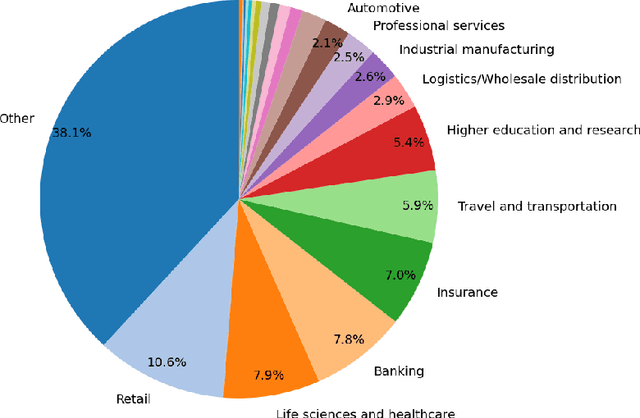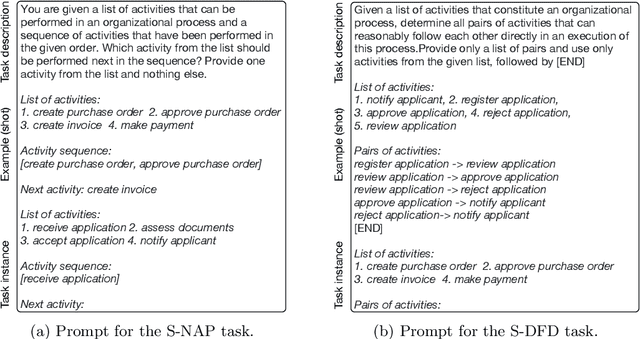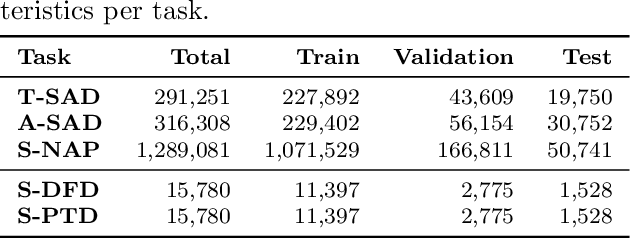On the Potential of Large Language Models to Solve Semantics-Aware Process Mining Tasks
Paper and Code
Apr 29, 2025



Large language models (LLMs) have shown to be valuable tools for tackling process mining tasks. Existing studies report on their capability to support various data-driven process analyses and even, to some extent, that they are able to reason about how processes work. This reasoning ability suggests that there is potential for LLMs to tackle semantics-aware process mining tasks, which are tasks that rely on an understanding of the meaning of activities and their relationships. Examples of these include process discovery, where the meaning of activities can indicate their dependency, whereas in anomaly detection the meaning can be used to recognize process behavior that is abnormal. In this paper, we systematically explore the capabilities of LLMs for such tasks. Unlike prior work, which largely evaluates LLMs in their default state, we investigate their utility through both in-context learning and supervised fine-tuning. Concretely, we define five process mining tasks requiring semantic understanding and provide extensive benchmarking datasets for evaluation. Our experiments reveal that while LLMs struggle with challenging process mining tasks when used out of the box or with minimal in-context examples, they achieve strong performance when fine-tuned for these tasks across a broad range of process types and industries.
 Add to Chrome
Add to Chrome Add to Firefox
Add to Firefox Add to Edge
Add to Edge